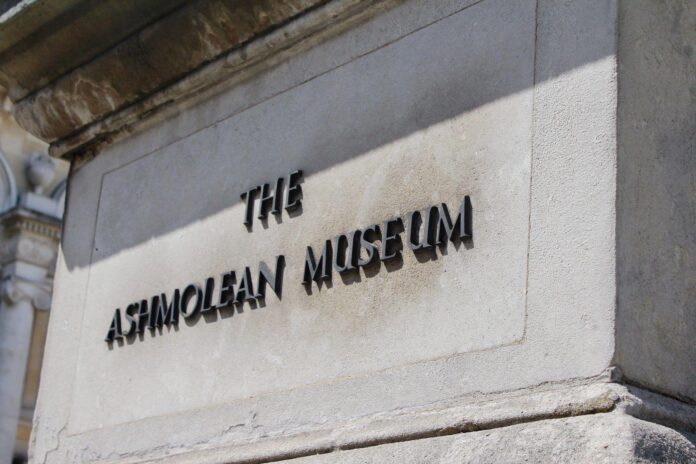Three brothers, heirs to part of an art collection that belonged to their grandfather, are in dispute with the Ashmolean Museum in Oxford, UK. The Ashmolean, founded in 1683 by the wealthy antiquary Elias Ashmole, is Britain’s oldest public museum and the world’s second university museum.
The bitter, complicated and long-running dispute stems from the estate of Lieutenant Colonel Mahlon Christopher Sands (1908-2000), who had substantial holdings of art inherited from his uncle, the noted collector Morton Sands (1884–1959). In 2001 the Ashmolean received ten works by Walter Sickert (1860–1942) from the trust established by Sands’s estate. In 2011, 30 other works, including 16 Sickerts, were allocated to the Ashmolean following their acceptance in lieu of tax. As a result, the institution now has one of the best collections of Sickert’s work anywhere.
The tussle centres on another 81 works from the Sands estate, the bulk by Augustus John, along with others by Sir William Nicholson, L.S. Lowry, and some minor Sickerts. Sickert, John and many other artists were members of the Camden Town Group, along with the society hostess and artist Ethel Sands—the sister of Morton Sands.

Augustus John, Dorelia, head and shoulders (undated)
Christie’s carried out an appraisal of the group in dispute in 2015 and their total estimate was around £1m at that time. The most expensive items are drawings by John—for instance Dorelia Reading, (undated) appraised at £120,000 at that time.
They were, according to Tarka Sands, one of the brothers, lent to the Ashmolean and should be returned, since the loan agreement has now expired. However, the museum contends that it is up to the trust to decide what happens to them—and that the decision has not been made.
The Ashmolean’s director, Alexander Sturgis, said in a statement: “Colonel Sands’s will made provision for these works to be distributed under a discretionary trust to the Ashmolean, to New College, Oxford (his old college), and to his grandsons after the death of his wife, Jean, who died in 2003. The final distribution of these 119 works is yet to be settled by the Trust and remains at the Trustees’ discretion.” The difference in numbers is because there are also some ephemera such as diaries.
There is much bitterness between the grandsons, the former trustees and the Ashmolean. The grandsons took the former trustees to court and they were removed after a settlement, with two new ones appointed, who have power of discretion. According to the grandsons, in 2014 the Ashmolean threatened to take out an estoffel order—a legal term preventing someone from going back on their word—although this was never applied. The Ashmolean did not respond to a request for comment on this order, but added when asked: “The Trustees of Colonel Sands’s Trust, which remains in existence, retain a broad discretion in relation to Colonel Sands’s personal items (including artworks), including to allocate such items to museums. The Ashmolean has made every attempt to engage with ColonelSands’s Trust and with his grandsons to find an agreeable distribution of the artworks in his estate. Throughout, we have been willing to discuss and negotiate the proportion of works that might be settled on the Museum, in accordance with Colonel Sands’s expressed wishes.”

Augustus John, Caspar, three-quarter-length, in profile (undated)
The grandsons say that the timeframe for donating the art to various institutions has now passed, and that they are now entitled to take back the 81 works of art. Tarka Sands says: “The estate is essentially paralysed and has been for some time now due to the power of discretion issue and it is the Ashmolean’s hostile claim for more art it cannot properly display that is disrupting its winding up. Twenty years is clearly way and beyond what could be considered a reasonable time in which to settle matters.”
Alexander Sturges also said in the statement: “Throughout this time we have remained in contact with Colonel Sands’s family and the Trust and have attempted to come to a reasonable agreement but we regret that this matter has not yet been settled. At no time during these extended discussions has the Trust requested that the Museum return the drawings.”
Asked about this, Tarka Sands replied: “It is correct that the present trustees themselves have never explicitly demanded the return of the loaned items, but as mentioned previously, on being appointed they were immediately confronted by [lawyers] Farrer & Co on behalf of the museum with the threat of legal action. They have instead sought to reach a compromise whereby the museum and ourselves each retain 50% of what remains on loan which is unacceptable to us.[ ….] We are of the view that the museum already has so much of Sands family’s art that it can display only a small proportion despite this being a condition of the gift, so what need has it for more? Graciousness and gratitude towards our family would seem appropriate under the circumstances, but this has not been our experience.”
And the Ashmolean notes: “The Museum remains open to further discussion.”

























